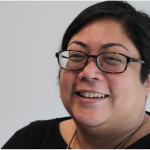Blockchain technology has so long been associated with cryptocurrency and investments that it’s often hard to imagine its application in other sectors. Essentially a digital ledger of transactions duplicated and distributed across an entire network of computer systems, blockchain has the power and capability to revolutionise the way businesses can build trust and traceability.
It’s a revolution that some businesses in Malaysia are fully embracing. Take Neocrab, for instance. The Sarawak-based mud crab farming company, the largest end-to-end producer of Frozen soft-shell crabs in Malaysia, embarked on its digitalisation journey in 2021 by partnering with blockchain tech providers Sinisana Technologies to help fulfil their export market requirements.
It almost instantly transformed Neocrab. Using Sinisana’s suite of products called Intersect, Neocrab was able to move away from pen and paper records as they digitalised all their main operations. Their headquarters can now monitor and manage all their facilities from a single platform – a vital feature, as some of Neocrab’s facilities are in remote areas.
Most importantly, Neocrab could finally lay claim to their food safety and product traceability initiative. See, Neocrab’s hatchery only harvests one cycle from a mother crab (out of a total four) before releasing the mother crab, or broodstock, back to the wild. This ensures that the wild population of crabs will continue to thrive – a sustainability initiative from the crab farmers.
Through Sinisana’s blockchain traceability, Neocrab is now able to expand their product traceability from an end-product to the original mother crab, allowing them to lay claim that their frozen soft-shell crabs were produced at their processing facility. Prior to this, they had trouble linking it to their farms and hatchery.
What more, Neocrab can now provide differentiation to their products by separating crabs which are wild-caught and those which are sustainably farmed. This allows them to yield maximum value by selling the right product to the right market.

Building trust
For Sinisana, blockchain is a technology that is predicated in trust. In cryptocurrency, the technology serves to create trust between different parties that may not know each other – the same characteristics makes blockchain suitable in helping enterprises with their digital transformation process.
“One of blockchain’s inherent trait is its’ immutability. Data cannot be changed once it has been uploaded to the blockchain. Any future edits would have a clear audit trail that is visible to anyone who has the rights to do so. Enterprises can leverage on this to improve their ability to interact with other enterprises,” explained Jonah Lau, Co-Founder and Chief Technology Officer (CTO) of Sinisana.
“For example, within supply chains, this can be used to advance trust that data supplied by a blockchain-enabled enterprise has a higher trust rating than one which is not. This can help reduce friction between different parties, reduce cost of doing business, and speed up the efficiency of data exchange.”
Sinisana Technologies began operations in 2019 with the express desire to use blockchain technology to make better supply chains through trust and transparency. Founded by supply chain expert Gary D’Agostino and technologist Jonah Lau, the Sarawak-based startup focuses on helping companies gain ‘consumer mindshare’ through improving compliance towards food safety, fraud prevention, sustainability, and responsible sourcing.
More specifically, they are looking to apply their tech towards food manufacturing, aquaculture, agriculture, and the halal industry.
“Blockchain can help improve consumer trust in the products from these industries through better information and product traceability. Most food traceability capabilities now, particularly in Malaysia, are limited to only one tier of data and can often end up being copied fraudulently. They are also costly, so are limited to only high-value products such as bird nest,” Lau added.
Sinisana’s offering is unique in that it is helping producers protect their brand at an affordable cost-level.
“We understand that margins especially within the food manufacturing sector can be challenging. Our blockchain system also provides the connective tissue to enable different enterprises to exchange data and as such, create traceability that is n-tier instead of single-tier. We believe that this is the way forward for Malaysian manufacturers to create trust in their product, whether it is from the aspect of food safety, sustainability, or labour standards compliance, particularly in the high-value export market,” said Lau.

Taking blockchain further
Blockchain’s robust capabilities also means that it can be implemented in other sectors and applications. Sinisana has signed a Memorandum of Understanding (MoU) with Sarawak Biodiversity Council to utilise blockchain technology to protect traditional knowledge and help the Council fulfill their commitments under the UNDP’s Access & Benefits Sharing Program, signed under the Nagoya Protocol.
Sinisana is also working with the Sarawak Digital Economy Corporation (SDEC) to bring blockchain traceability to the private and public sector in Sarawak.
The startup has chosen Malaysia as its home base thanks to the country’s unique advantages. “It is multi-cultural and multi-lingual with many highly-skilled tech developers. It is easy for us to tap into talent that can serve our key markets,” said Gary D’Agostino, Co-Founder and CEO. They set up their establishment in Kuching, Sarawak, as they believe that it is an untapped market with many talents.
Come 2022, Sinisana intends to introduce their blockchain technology to more enterprises and industries in Malaysia. The startup is currently working with Malaysia Digital Economy Corporation (MDEC), Malaysia’s lead digital economy agency, to pilot the tech in a few industries, as well as bringing wider attention to the benefits of blockchain.
MDEC has provided support to Sinisana since the startup made their first funding announcement and has helped introduce them to various potential partners. “As a fully Malaysian-developed solution, we hope to be able to continue building upon this relationship and helping Malaysia become a leader in enterprise blockchain,” D’Agostino said.
For Sinisana, the blockchain ecosystem in Malaysia is still very much focused on cryptocurrencies and its surrounding ecosystem. There is much room for growth and improvement.
“Ideally, Malaysia needs to encourage diversification in the types of blockchain work that is done in the country. Both the public and private sectors need to further education on how blockchain technology can help digitally transform their future,” added D’Agostino.
Efforts are on the way to do just that. MDEC’s support of Sinisana is part the agency’s wider aspirations to drive digital investments to Malaysia and advancing Malaysia’s digital economy by focusing on key industry sectors, focus technologies, and emerging technologies that are identified as key drivers.

The five key emerging technologies recognised as crucial towards the development of a future-ready digital economy are DroneTech, Edge Computing, Extended Reality, Advanced Robotics and, of course, Blockchain.
“We believe blockchain can be a foundational block in Malaysia’s push to be the digital hub of ASEAN. Blockchain has limitless potential in innovating existing business practices and operations – Sinisana’s inventive and successful implementation of their technology is a demonstration of how robust blockchain can be in solving business and social challenges. MDEC looks forward to supporting Sinisana in their further ventures and will continue to drive digital investments around blockchain technology in Malaysia,” said Raymond Siva, Senior Vice President, Digital Investment, MDEC.
MARKETING Magazine is not responsible for the content of external sites.









